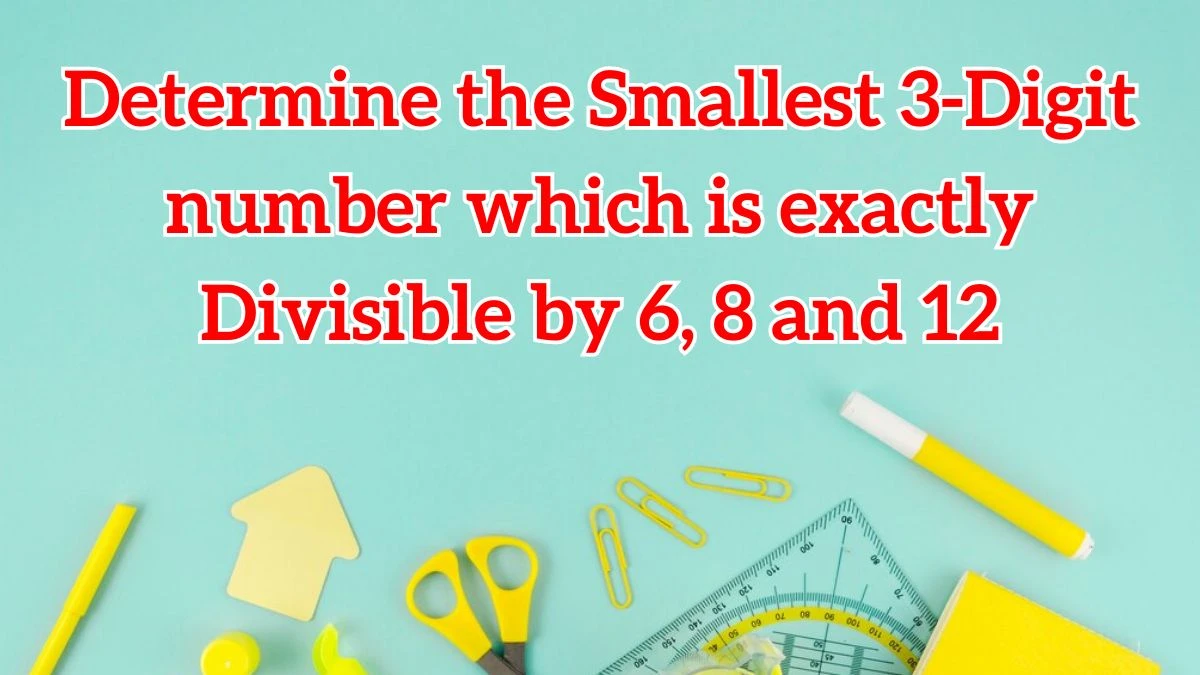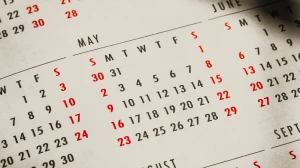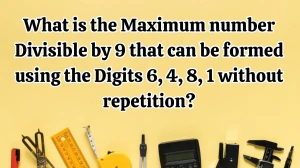Determine the Smallest 3-Digit number which is exactly Divisible by 6, 8 and 12
by
Updated Jul 02, 2024

Determine the Smallest 3-Digit number which is exactly Divisible by 6, 8 and 12
To determine the smallest 3-digit number which is exactly divisible by 6, 8, and 12, we need to find the least common multiple (LCM) of these numbers.
Prime Factorization:
6 = 2 × 3
8 = 2 × 2 × 2
12 = 2 × 2 × 3
The LCM is found by taking the highest power of each prime factor that appears in the factorizations.
For 2, the highest power is 23 (from 8)
For 3, the highest power is 31 (appears in 6 and 12)
Therefore, the LCM of 6, 8, and 12 is
LCM = 23 x 31 = 8 x 3 = 24
The smallest 3-digit number is 100.
To find the smallest 3-digit multiple of 24, we divide 100 by 24 and round up to the nearest whole number:
100/24 = 4.1667
Rounding up, we get 5
Then 24 x 5 = 120
The smallest 3-digit number that is exactly divisible by 6, 8, and 12 is 120
What is Least Common Multiple (LCM)?
Mathematics often deals with situations where we need to find a common measurement or unit that can be evenly divided by two or more numbers. The LCM is a fundamental concept used to find such a common measurement.
Definition and Purpose:
The LCM of two or more numbers is the smallest number that is divisible by each of them without leaving a remainder. It’s essential in various mathematical problems, especially those involving fractions, simplification, and proportionality.
Finding the LCM:
This involves breaking down each number into its prime factors and then identifying the highest powers of all primes present in any of the numbers. Another method involves listing the multiples of each number until a common multiple is found, starting from the smallest number.
Applications
- When adding or subtracting fractions with different denominators, the LCM helps find a common denominator.
- Many word problems in mathematics require determining a common time, distance, or measurement that is divisible by given values, which is facilitated by the LCM.
- In geometry, especially in problems involving the measurement of angles or sides of shapes, the LCM ensures that all parts can be uniformly scaled or divided.
- LCM helps in scheduling tasks, events, or cycles that repeat at regular intervals.
- LCM calculations are used in determining periods for financial investments or loan repayments, where regular intervals are crucial.
- It simplifies complex problems by reducing fractions, coordinating multiple events, or ensuring smooth calculations in diverse mathematical contexts.




